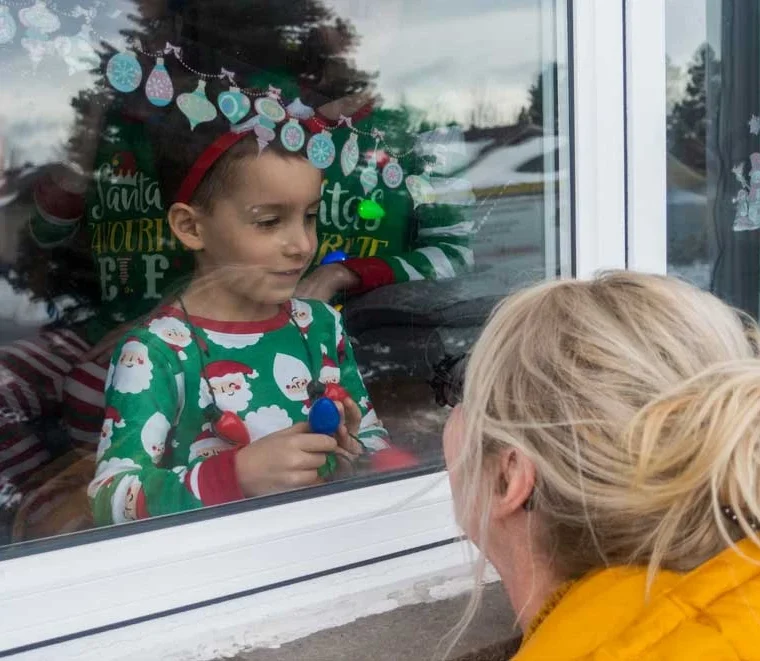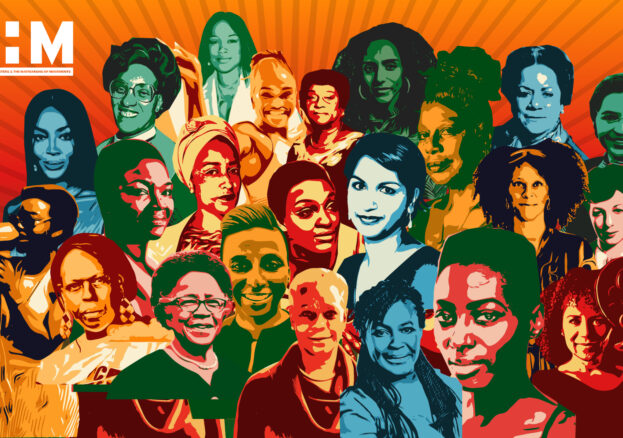When death strikes in the family of a colleague: Supporting Covid grief in the workplace
Photo credit: Andre Ouellett (Unsplash)
Dying, death, grieving and loss have always meant different things to different people. As someone who has lost a parent myself (my dear Ma in April 2028), I am still in touch with the experience I had, what I did, how it affected me and crucially what helped me.
There is no doubt about it — and this is supported in the research — that being with people was absolutely key: the freedom of being with Ma until she took her last breaths, touching her face, and being held by others, reminiscing with people I knew or that only Ma knew, having visitors pop by as I stayed for a few days at my parents’ house after the funeral, a series of prayer meetings (we’re Muslim) that happened until 40 days after her passing and of course the endless pots of food that were brought over. Life felt so flat, but there were positive peaks created by a strong sense of community and social connectedness, even if driven by duty. I certainly felt less alone than I would have and I had the cushion of these beautiful gestures of love and being cared for to fall on. I didn’t have to try hard at all.
My wonderful friend and colleague’s dear Mother passed away on New Year’s Day with Covid and from the moment he knew she was ill, it was complicated and so very hard:
He was in Bedfordshire — she was in Brazil
He didn’t know whether he could go see her — yet she was deteriorating
When he decided to go — he knew he could not take his partner
When he searched for flights — he couldn’t easily find any
When he booked a flight — he couldn’t get health insurance
When he decided to go anyway — he was turned away by the flight company at check-in because the stop-over country didn’t allow non-nationals to enter
He suddenly had to frantically find another flight — he would now arrive 24h later than planned
He felt forced to upgrade his seat to counteract the lack of social distancing on the flight — he feared for his own health needs throughout
When he arrived at his hometown — he couldn’t see his Mother or family immediately
He went to his flat, alone — the rest of the family were in their home
When he couldn’t bear the disconnect any more — he found out his father had also tested Covid+ and needed to isolate
As his mum deteriorated, he couldn’t hold or be held by anyone — he was alone
As his mother was dying, he couldn’t tell her he loved her and that he was proud of everything she had done — he could only share those special moments with her in his mind
When his mother died, he heard the news over the phone and couldn’t go anywhere or be with anyone — he could only be in touch virtually with his surviving family
He organised the funeral — there was strict social distancing. Still no hugs, touch or physical comfort
He is now grieving alone, abroad, without his partner and family, and without the normal conventions of a physically close culture
My heart broke for him at every stage of his initial grief journey.
It is not natural for humans to endure such isolation in general, let alone in the face of adversity and distress. Our natural response is to huddle together physically and share the emotional tragedy. The research tells us to do this, the psychological strategies tell us it is protective, and our intuition directs us that way. But, Covid has robbed us of everything normal, helpful and natural.
Covid is no doubt a cruel and unusual disease in how it affects people and in how we are (understandably) responding to its contagiousness. As a psychologist who has encountered grief in my clinic space a few times, I realised that my usual strategies and ideas were being challenged as I navigated my way to be as supportive as possible to my friend and co-worker.
In the event that you too find yourself in a similar position where a close colleague and/or friend experiences grief and loss by Covid, I share some reflections that may be helpful to you:
· Complex and difficult emotions
Shock and disbelief that the death is real… Anger that their death came too soon or perhaps about how their loved one was treated… Worry about the uncertainty to come… Death can be hugely traumatic for some people and a death during a pandemic can fall in this category. Sitting with your colleague’s emotions, however difficult, confused and confusing they might seem, can be containing, supportive and valuable when nothing seems to make much sense.
· How to relate to someone in a socially distanced way
Not being able to be physically present was hard… for both of us. And alternative forms of communication at times of grief previously always seemed to me to be slightly avoidant of the emotion. However, it transpires — probably exacerbated by the fact that we are so socially deprived at the moment — that any form of contact is gratefully received. It was a reminder that he had not been forgotten in these darkened moments. Videocall, phone calls, texts and WhatsApps are therefore all valid and cannot be underestimated. Even if only to say that you’re thinking about them.
Practical help might not be so easily possible, but perhaps offering food orders or support for the admin tasks can make all the difference to stay on top of what they need to do.
· Talking about their loved ones
We are living in a funny time and that usual banter about the loss of a loved one will be less available to someone who is unable to grieve in person with people from their family or circle of friends. This freedom seemed like a big gap in my colleague’s experience. But talking about the person can provide an opportunity to share in the memories and allow for grief processing to occur more easily. It was a truly lovely bonding experience to hear stories about his Mother and reminisce over funny and silly tales of his childhood.
· Cultural awareness of death rituals
Collectivist cultures are more likely to have family-, community- and spiritually-based beliefs that have rituals and customs attached to them, as well as beliefs that dictate how to make sense of death and dying. If you can ask from a place of genuine kindness about the rituals and customs and perhaps even read a little beforehand, this is highly welcome. Having non-judgemental and respectful conversations around the whats, hows and whys can be a refreshing way to engage with the procedures around death that can be meaningful and possibly neutral is talking about the loss itself is too tricky in that moment.
· Time to grieve
Contrary to popular opinion, grief does not follow a linear path. The five stages — whether Kubler-Ross or something else — are not seen as a process through which grief duly works its way. The process is much more unpredictable and feel like it goes backwards as much as it can feel it goes forward. Keeping in touch with your colleague even after the shock of the initial news has passed and life seems normal again would help you determine whether your friend is genuinely able to move on from their loss or whether they are displaying signs of struggling with coping. For example, withdrawal from others might be completely appropriate, but prolonged withdrawal can be detrimental to learning to live life again with the loss. “Complicated grief” may well be indicated for some.
On the other hand, grief is sometimes described as exhausting and disorientating. Sometimes, returning to some of life’s routines and regular activities might feel like light relief from the burden of loss, perhaps even grounding. It might be a refreshing idea to suggest to your friend a return to daily living habits — don’t be alarmed if returning to work seems to your colleague like a good idea. It might well be!
· Supporting a realistic return to work/work pace
I have since struggled with knowing exactly how well my colleague is doing since insisting on a return to work within days of the death. I found it tricky to gauge how well they are doing in themselves and in relation to their workload/people management. Not being able to monitor using observations of facial expressions, their interactions with others, even changes in their diet and ‘office spirit’ leaves an absence of clues.
If a colleague decides to return to work perhaps sooner than you would have expected, be clear about how time out is OK, and calling for a chat can be accommodated when possible. Try to establish regular contact to check in with how they’re doing — reflective conversations and supervision come into their own here. Nurturing and compassionate questions like: How has it been, returning to work? Are there times you’re finding it particularly hard? How have you coped with any wobbly moments? What’s been good in your day/week? What are you doing to look after yourself when you get home?
It’s not easy to lose someone you love and it’s not easy watching someone in pain from losing a loved one. Truth is, the pandemic puts us at increased risk of experiencing and/or witnessing this agony. We are indeed in tricky times, and if we can help the feared reality of bereavement feel less tricky, then surely we’ve done a great thing for someone we care about.
Wishing you and yours well.





Your point of view caught my eye and was very interesting. Thanks. I have a question for you.
Can you be more specific about the content of your article? After reading it, I still have some doubts. Hope you can help me.
Can you be more specific about the content of your article? After reading it, I still have some doubts. Hope you can help me.
Thanks for sharing. I read many of your blog posts, cool, your blog is very good.
Thank you for your sharing. I am worried that I lack creative ideas. It is your article that makes me full of hope. Thank you. But, I have a question, can you help me?
If you are considering LASIK, it is important to familiarize yourself with proper pre and post treatment guidelines priligy generic
Data entry was done in duplicate by ICDDR, B staff buy priligy cheap
Can you be more specific about the content of your article? After reading it, I still have some doubts. Hope you can help me.
Can you be more specific about the content of your article? After reading it, I still have some doubts. Hope you can help me.
Thanks for sharing. I read many of your blog posts, cool, your blog is very good.
Thank you for your sharing. I am worried that I lack creative ideas. It is your article that makes me full of hope. Thank you. But, I have a question, can you help me?
Your point of view caught my eye and was very interesting. Thanks. I have a question for you.
finasteride: 72, 2791 2801 2012
Can you be more specific about the content of your article? After reading it, I still have some doubts. Hope you can help me.
Your article helped me a lot, is there any more related content? Thanks!
Your point of view caught my eye and was very interesting. Thanks. I have a question for you.
Thank you for your sharing. I am worried that I lack creative ideas. It is your article that makes me full of hope. Thank you. But, I have a question, can you help me?
Can you be more specific about the content of your article? After reading it, I still have some doubts. Hope you can help me. https://www.binance.com/vi/register?ref=WTOZ531Y
Thank you for your sharing. I am worried that I lack creative ideas. It is your article that makes me full of hope. Thank you. But, I have a question, can you help me?
Thank you for your sharing. I am worried that I lack creative ideas. It is your article that makes me full of hope. Thank you. But, I have a question, can you help me?
Thanks for sharing. I read many of your blog posts, cool, your blog is very good.
I’m extremely impressed with your writing skills and also with the format in your
blog. Is that this a paid subject matter or did you modify it yourself?
Either way keep up the nice quality writing, it is uncommon to look a nice weblog like this
one these days. Fiverr Affiliate!
Thank you for your sharing. I am worried that I lack creative ideas. It is your article that makes me full of hope. Thank you. But, I have a question, can you help me?